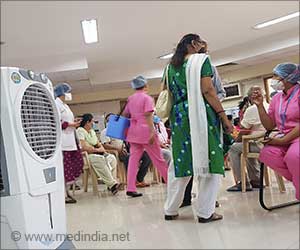A recent directive from the Supreme Court of India for expert panels to decide on prosecuting doctors for criminal negligence has been widely welcomed.
A Bench comprising Justices Markandey Katju and R M Lodha allowed the appeal of Dr Martin F D'Souza of Nanavati Hospital in Mumbai who had been directed by the National Consumer Commission to pay Rs four lakh with interest at 12 per cent from August 1, 1992.The National Consumer Commission, in its order dated April 9, 2002, had also awarded a compensation of Rs three lakh with cost of Rs 5,000 to the patient Mohammad Ishfaq. He was under the treatment of Dr D'Souza for kidney transplant as he was suffering from chronic renal failure. He was admitted to Prince Ali Khan Hospital on June 25, 1991.
He complained that his hearing had become impaired because of overdose of amikacin 500 mg. He had been directed to take the tablet twice a day for 14 days.
But the Supreme Court pointedly noted that the doctor had actually saved the patient's life. The hearing impairment was only a side-effect of the drug.
"Life is surely more important than side effects," Justice Katju said, writing the judgement of the bench.
"The courts and consumer fora are not experts in medical science and must not substitute their own views for that of specialists. It is true that the medical profession has to an extent become commercialised and there are many doctors who depart from the Hippocratic oath for their selfish ends of making money. However, the entire medical fraternity cannot be blamed or branded as lacking in integrity or competence just because of some bad apples…
“Indiscriminate proceedings and decisions against doctors are counter-productive and serve society no good. They inhibit the free exercise of judgment by a professional in a particular situation."
Therefore, whenever complaints were received against a doctor or hospital, the consumer forum or criminal court, before issuing notice, should first refer the matter to a competent doctor or a committee of doctors, specialising in the field where negligence was attributed, the court stressed.
Only after that doctor or committee "reports that there is a prima facie case of medical negligence should notice be issued to the doctor/hospital concerned."
The ruling is a timely intervention in a country like India, where assaults on doctors or raids on hospitals are reported periodically. When a patient dies in the hospital, invariably the doctors concerned are blamed.
And affected families don’t wait to figure out or discuss or move the courts for redressal. They simply bash up the doctor or, worse, ransack the hospital itself, all depending upon one’s political clout or muscle power.
The state of Andhra Pradesh in southern India was rocked by a series of incidents involving legislators and their families, resulting in a strike by doctors. The state government had to intervene and frame stringent laws against assaults on the medical community.
Doctors’ associations had to protest vigorously when hospitals were held to ransom in Cuddaore in Tamil Nadu, another southern state. Any death, any mishap was enough for some local outfits to raise the issue of negligence and demand hefty compensation. After protests by the associations, things have quietened down a bit, but no one is sure things will remain that way for long.
In its D’Souza judgement, the court observed: "We further warn police officials not to arrest or harass doctors unless the facts clearly come within the parameters laid down by the apex court in Jacob Mathew's case; otherwise, the policemen will themselves have to face legal action."
In the Jacob Mathew vs. State of Punjab in August 2005, the Supreme Court directed law enforcement agencies not to proceed against doctors accused of rash or negligent act or omission without obtaining an independent and competent medical opinion to support the charges.
The judgment arose on an appeal filed by a doctor in Chandigarh who was being prosecuted over the death of a terminally ill cancer patient. The complaint was that the hospital did not provide oxygen in time.
On facts, the apex court held that the doctor could not be prosecuted for the issue raised. Extreme care and caution should be exercised while initiating criminal proceedings against medical practitioners for alleged medical negligence, it said.
The court observed that the service which medical profession rendered to human beings was probably the noblest of all and hence there was a need to protect doctors from unjust prosecutions.
The court also regretted that increasingly doctors were being subjected to criminal prosecution, but such a tendency should not be encouraged, it said.
The judgement, laying down elaborate guidelines for prosecution of doctors, is considered a landmark in Indian jurisprudence, and it is to that the apex court is now harking back.
Understandably, the medical community is elated. Hailing the apex court's order in the D’Souza case, Narendra Saini of the Indian Medical Association, said: "We really appreciate the ruling as the medical profession is totally different from any other profession and a judge cannot make an opinion on medical treatment.
"Medical treatment is not like a mathematical equation where a particular input always gives a particular output. The treatment methodology can vary from doctor to doctor and you cannot adjudge negligence on one scale.
"If there is a negligence by a doctor then it should pass through a medical board who understands the methodology of the medical process."
Dr K. Prakasam, president of Tamilnadu State Medical Council, said, "We wholeheartedly welcome this judgment. It would protect the medical community against misuse of laws.”
He hoped one would see an end to the obnoxious practice of blackmailing doctors by interested groups and called upon the state government to appoint doctors’ panels at all levels.
However, Dr T N Ravishankar, honorary secretary of the Tamil Nadu unit of the Indian Medical Association, is cautious. "It is a welcome decision but I have my own doubts about the implementation. This judgment delivered by a two member bench could be overruled by a larger bench. I have long been demanding that an administrative tribunal be set up to handle cases against doctors and hospitals, like you have for Group-I/Class -I employees. This medical tribunal could comprise of doctors and legal experts. Such a tribunal would also increase the confidence of the medical community in the legal system."
Even lawyers, crusading for the rights of the patients, have lauded the judgement as sensible.
"How can you expect the doctors to act in free spirit if they are under constant fear of prosecution for things they do in good intention and which might go wrong? Also such fear will only elongate the process of the treatment. They would not only be afraid to work; they would also make patients go through unnecessary screening processes leading to delayed treatment. I am all for SC judgment. I think a panel should decide on prosecuting the doctors. The other government employees enjoy such privilege. Why not the medical community?" asks Sudha Ramalingam, a leading human rights lawyer from Tamil Nadu.
But she stresses that the SC judgment does not rule out the prosecution of doctors. "Only it advises more caution while doing so."
Yet others think no section can be accorded special privileges on the premise of their knowledge or special circumstances. "Doing so places them above other citizens. Law should be equal for all. Why should it favour an erring doctor and act against a victim of medical negligence?" argued Senthil Kumar, a young advocate.
There has been some criticism of the Jacob Mathews judgement itself. Writing in the Indian Journal of Medical Ethics, Hariharan Nair said, “Since Section 304A refers only to rash or negligent acts, it is a doubtful proposition that mens rea (guilty intent) must be shown for establishing a case of criminal negligence. The interpretation reading in the prefix ‘gross’ before ‘negligence’ (the latter alone appears in Section 304A of the IPC) also attracts the same criticism.
“One has to hope that professionals will rise to the occasion and start discharging their functions with more care and responsibility rather than trying to hide under the shield provided by the court.”
After all it is not as if only attacks on hospitals and doctors alone are a matter of concern. There have been innumerable cases wherein doctors have not simply lived up to their Hippocratic oath. Hence the skepticism as sounded by Nair.
Now that law is firmly on their side, the medical community should make life better for everyone around, without worrying about the thugs lurking in the corner.
Source-Medindia
GPL/L







